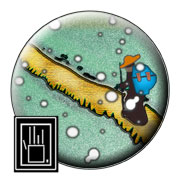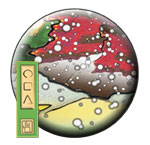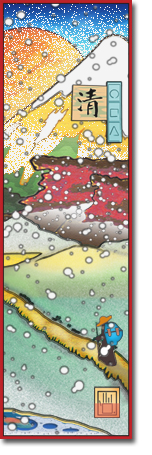On The Way: The Daily Zen Journal
One Practice Samadhi pt 3
Hui-neng (638-713)
I have come here today because I have a connection of many lifetimes with you officials, clerics, and laypeople. This teaching has been passed down by the ancients. It isn’t something I discovered by myself. But if you wish to hear this teaching of the ancients, you must listen with pure minds. And if you wish to get rid of your delusions, you should understand it as past generations have.

Hui-neng then proclaimed, Good friends! You already possess the prajna wisdom of enlightenment! But because your minds are deluded, you can’t understand by yourselves. You need to find a truly good friend to show you the way to see your nature. Good friends, buddha nature isn’t different for the ignorant and the wise. It’s just that people are deluded or awake. When people are deluded, they’re ignorant. When they wake up, they become wise.
Good friends, this dharma teaching of mine is based on meditation and wisdom. But don’t make the mistake of thinking that meditation and wisdom are separate. Meditation and wisdom are of one essence and not two. Meditation is the body of wisdom, and wisdom is the function of meditation. Wherever you find wisdom, you find meditation. And wherever you find meditation, you find wisdom. Good friends, what this means is that meditation and wisdom are the same.
Fellow students of the Way, be careful. Don’t think that meditation comes first and then gives rise to wisdom or that wisdom comes first and then gives rise to meditation or that meditation and wisdom are separate. For those who hold such views, the dharma is dualistic: If the mouth speaks of goodness, but the mind doesn’t think of goodness, meditation and wisdom aren’t the same.

But if goodness pervades both the mouth and the mind, if what is external and internal are alike, then meditation and wisdom are the same.
The cultivation of self-awareness does not involve argument. People who argue about which comes first and which comes second only confuse themselves. Unless you put an end to right and wrong, you will give rise to self-existent dharmas, and you will never be free of the Four States.
One Practice Samadhi means at all times, whether walking, standing, sitting, or lying down, always practicing with a straightforward mind.

The Vimalakirti Sutra says, “A straightforward mind is the place of enlightenment,” and “a straightforward mind is the pure land.” Don’t practice hypocrisy with your mind, while you talk about being straightforward with your mouth.
If you speak about One Practice Samadhi with your mouth, but you don’t practice with a straightforward mind, you’re no disciple of the Buddha. Simply practice with a straightforward mind and don’t become attached to any dharma. This is what is meant by One Practice Samadhi.
Deluded people who cling to the external attributes of a dharma get hold of One Practice Samadhi and just say that sitting motionless, eliminating delusions, and not thinking thoughts are One Practice Samadhi. But if that were true, a dharma like that would be the same as lifelessness and would constitute an obstruction of the Way instead.

The Way has to flow freely. Why block it up? The Way flows freely when the mind doesn’t dwell on any dharma. Once it dwells on something, it becomes bound. If sitting motionless were right, Vimalakirti wouldn’t have criticized Shariputra for meditating in the forest.
Hui-neng (683-713)
Excerpted from The Platform Sutra – The Zen Teaching of Hui-neng trans by Red Pine 2006





Sutras always refer to the words of the Buddha himself, and yet, the Platform Sutra is the only teaching called a sutra and is ascribed to one of the most famous Zen patriarchs, Hui-neng. What is it about this manuscript found in the Tunhuang caves that merits this?
Perhaps it is the directness, simplicity, and compassion for not only those present, but Hui-neng also allowed teaching for “people of future generations.” Shortly before he died Fa-hai asked:
“As the Master is departing, what dharma is he leaving behind so that future generations will be able to see a buddha?”
The Sixth Patriarch said, “Listen, if the deluded people of future generations can simply understand what a sentient being is, they’ll be able to see a buddha. If they don’t understand what a sentient being is, they can look for a buddha for ten thousand kalpas and still not find one. …I will leave you with a verse called “The Liberation of Seeing the True Buddha.” As long as a person is deluded, they won’t see a buddha—only someone who is awake will.”
“Deluded a buddha is a being
enlightened a being is a buddha
a foolish buddha is a being
a wise being is a buddha
a biased buddha is a being
an unbiased being is a buddha
as long as your mind is biased
the buddha dwells in a being
the moment you wake up unbiased
a being becomes a buddha
your mind contains a buddha
your buddha is the real one
if you didn’t have the buddha-mind
where would you go to find a buddha?”
Fundamentally yours,
Elana, Scribe for Daily Zen